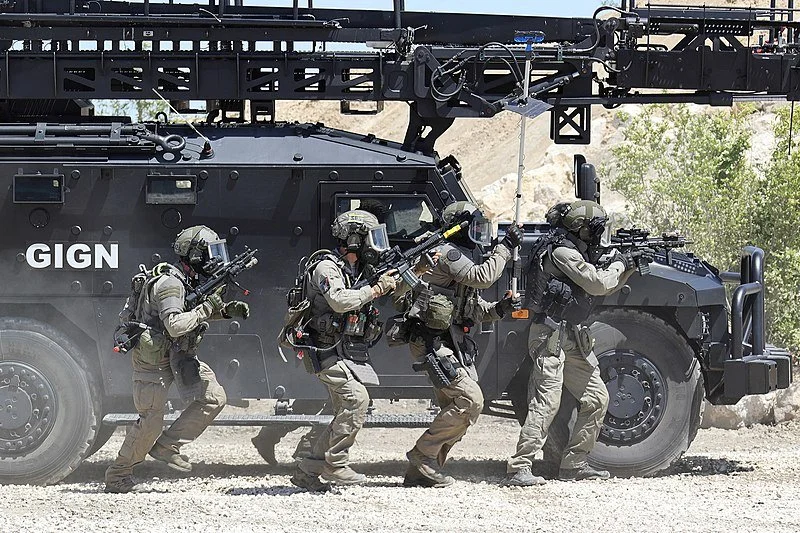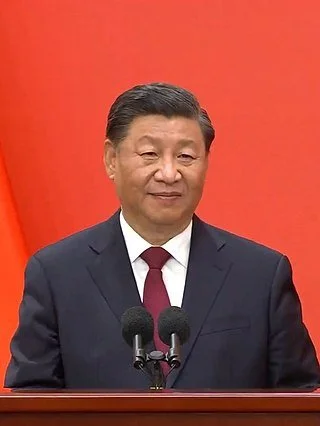Together to Protect: Europol’s ATLAS Network and the Future of European Security
It is just past 03:00 on the 10th of October, 2018, and the platform of Warsaw’s Wilanowska metro station is shrouded in darkness. On the right side sits a commuter train, with a small group of gunmen and 500 hostages onboard. Suddenly, a thundering roar and bright flash shatters the silence in the station, as a stun grenade detonates near the lead carriages. Emerging from the shadows, members of the Polish Police’s Bureau of Anti-Terrorism Operations, alongside officers from Latvia, Lithuania, and Estonia, sprint towards the immobilised train. Shattering the windows with Halligan bars, the multi-national team engages the gunmen from outside the carriages, while others force open the doors and begin evacuating the hostages. Within minutes, all the hostage-takers are killed or taken into custody, and, by 04:00, all 500 passengers have made it above-ground. Simultaneously, more than 2,000 kilometres away off the coast of Ireland, counter-terrorism units from the United Kingdom, Ireland, and Iceland prepare to board a vessel belonging to affiliates of the Polish gunmen. Approaching by air and sea, the assault force prepares for the latest in a series of intelligence-driven operations aimed at dismantling the criminal organisation.
These scenes were just exercises, two of the seven scenarios forming part of Europol’s ATLAS Common Challenge 2018. The Common Challenge is a yearly training event, testing the capacity for Europol’s ATLAS Network to conduct integrated planning, intelligence collection, and law enforcement operations across the continent. The European experience in tactical counter-terrorism was itself born out of a similar incident: during the 1972 Munich Olympics, members of the Palestinian Black September organisation stormed into the accommodation blocks of the Israeli team, killing two athletes and capturing a further nine. A failed West German rescue attempt resulted in the deaths of all remaining hostages and sparked the formation of dedicated special intervention units such as the German Police’s GSG-9 and French Gendarmerie’s GIGN, specially trained and equipped to resolve crises that exceeded the capabilities of conventional law enforcement. The attacks of September 11th, 2001, resulted in a subsequent evolution, with the commanding officers of five counter-terrorism teams meeting in Brussels a month later to discuss the creation of a formal network of EU counter-terrorism forces.
ATLAS, now composed of 38 special intervention units from 31 European states under the motto ‘All Together to Protect You’, was born.
In addition to hosting regular combined exercises, ATLAS serves as a centralised hub for the development of tactics, techniques, and procedures in domains ranging from subsurface dive infiltrations to crisis negotiation. The network is broken into ten expert groups and research forums, in addition to a dedicated ATLAS Support Office to facilitate coordination with Europol. Most importantly, ATLAS has also acquired an operational mandate and is tasked with coordinating the cross-border deployment of EU special intervention units if a member state requests assistance. ATLAS has undoubtedly evolved since its inception in 2001, but the shifting global security landscape highlights new threats to European interests for which the network is ideally suited to confront.
Though the tactics of violent extremist and criminal groups have shifted since the murder of the 11 Israeli athletes at the 1972 Munich Olympics, from the hostage-takings and hijackings of the 1970s to the marauding gun attacks seen in Mumbai or Paris, the risk posed to European citizens at home and abroad remains unchanged. In November of 2015, al-Qaeda gunmen stormed the Radisson Blu Hotel in Bamako, Mali, and took approximately 170 hostages, among them multiple crews from Air France and a United Nations delegation. France's National Gendarmerie Intervention Group launched its on-call counter-terrorism alert section, but by the time the team landed in Bamako the hostage-takers had been killed. The rapidity of these attacks in addition to the necessity to obtain legal authorisation from a host-nation means that European special intervention units would be unlikely to mobilise sufficient personnel and resources, nor receive the necessary local political support to effect a unilateral rescue of their citizens. Nonetheless, the ATLAS Network can still play an invaluable role. An ATLAS response element could be formed as a small liaison cell composed of members from the network’s ten expert forums, capable of rapidly deploying to crises outside of Europe in which EU citizens were threatened. These individuals would not be combatants, but instead specialists in niche fields such as unmanned vehicles and surreptitious breaching that host-nation forces would be unlikely to possess. Their mission would be twofold - supporting the planning and preparing of an eventual assault as well as a providing a dedicated technical reach-back to ATLAS should a larger footprint be requested by the host-nation.
An expanded external mandate for ATLAS need not stop at crisis response. The network must also focus on building resiliency and preparedness within non-members by providing long-term mentorship to law enforcement units in vulnerable states which lack the resources to effectively combat threats to internal stability. ATLAS could, for instance, be more closely integrated with the EU Common Defence and Security Policy, sending personnel abroad as part of EU Training Missions in an effort to enhance the competence of host-nation counter-terrorism units. With their unique blend of paramilitary training needed to operate in non-permissive environments, as well as traditional policing skills used to maintain public order or conduct crisis negotiations, members of the ATLAS Network offer a vital pool of expertise that has yet to be fully tapped by the EU. Courses in areas ranging from close-quarters battle to evidence preservation and presentation in court could be offered, serving to both grow the capability of external states and expose EU police forces to emerging adversary tactics they may soon confront at home.
Finally, the ATLAS Network could also serve as a vital institution when confronting state-based challenges to European security. The escalation of covert action from Russia, such as the destruction of Czech munition depots or attempts to compromise the security infrastructure of the OPCW, has emphasised the need to develop countermeasures capable of interdicting these destabilising operations without resorting to military force. ATLAS could respond by forming a dedicated Countering-Hybrid Threat Research Forum, leveraging the network’s skills in fields such as specialist surveillance and crisis communication to aid member states in identifying, disrupting, or responding to unconventional threats as they appear. Above all, the network’s role as a hub for cooperation ensures that lessons learned in the fight against hybrid threats are rapidly analysed and disseminated to inform the response of member states to current and future dangers.
ATLAS, ultimately, remains an under-tapped resource within the European Union’s security apparatus. Such theoretical evolutions are complex to transform into practice, but if the network is to remain true to its commitment, ‘All Together to Protect You’, they are necessary. The ATLAS Network’s no-fail mission, to intervene with the aim of preserving life, demands nothing less.
Image courtesy of Domenjod via Wikimedia, ©2022, some rights reserved.
The views and opinions expressed in this article are those of the author and do not necessarily reflect those of the wider St. Andrews Foreign Affairs Review team.



